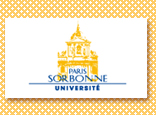| Big dimwits and little geniuses
Time Magazine, January 3, 1983.
1) Who was elected "Man of the year" in 1983 by Time Magazine ?
2) What is a "dimwit"? What types of computers are called "dimwits" in the text and why? Who are the "little geniuses"?
3) Make sure that you are familiar with the vocabulary of the text: make special search on words like:
Abacus, speedometer, cow-catcher, reliable life expectancy tables, gears and cogs, contraption, store, nerd, levers and belts, to devise, to recoup money at the track, punched card, loom, weaver, census, to display, remote processing...
4) The History of computers
Find out about famous characters mentioned in the text: their dates of birth and deaths, their achievements : use an encyclopaedia and the internet. I indicate a few examples of sites dedicated to their works : find out more and write a short synthesis about what you learnt on the site visited; express your opinion on the site: which did you find really helpful and scientifically satisfying? Look at least for:
Blaise Pascal, Charles Babbage, Ada the Countess of Lovelace, Herman Hollerith, Alan Turing.
Examples of sites:
ENIAC (http://www.arl.mil/~mike/comphist/eniac.story.html)
Pascal's Machine (http://www.thocp.net/hardware/pascaline.htm)
Babbage (http://www.cbi.umn.edu/exhibits/cb.html)
Hollerith (http://www-gap.dcs.st-and.ac.uk/~history/Mathematicians/Hollerith.html)
Alan Turing (http://www.turing.org.uk)
5) Go and visit the site of the Science Museum in London and find the Difference Engine and the Analytical Engine.
6) Go and visit the internet site of the "Computer Museum" (it is located actually near San Diego) and find out the machines mentioned in your text. Comment on the evolution of this technology.
7) What are the most important parts of a computer? Even though you are not a technician you must understand the rudiments that will allow you to understand what you should check when you intend to buy a computer for instance.
8) Which types of computers do you know? ...from the biggest to the smallest.
9) Read the glossary and make sure you know what these terms mean:
Hardware, software, CPU, OS, PC, binary digits, byte, (megabyte,gigabyte...)modem, ROM/RAM, pixel, OCR, hypertext, virus, antivirus....scanner...
|



